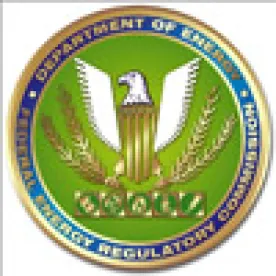On April 28, 2016, the Federal Energy Regulatory Commission (“FERC”) issued an order[1] directing Total Gas & Power North America, Inc. (“TGPNA”) and two natural gas traders (together the “Respondents”) to show cause why they should not be found to have violated the Natural Gas Act’s (“NGA”) prohibition on market manipulation by engaging in a scheme to manipulate natural gas prices in the southwest United States to benefit related financial positions between June 2009 and June 2012. FERC is proposing civil penalties of $213.6 million against TGPNA and $1 million and $2 million against the two traders (joint and severally with TGPNA) as well as disgorgement of $9.18 million, plus interest.
The order follows a January 27, 2016 complaint filed by the Respondents in the U.S. District Court for the Western District of Texas to enjoin FERC from proceeding with an administrative enforcement action against the company and individuals.[2] It also comes on the heels of a December 2015 settlement between TGPNA and the Commodity Futures Trading Commission (“CFTC”) in which TGPNA agreed to pay $3.6 million in civil penalties for attempting to manipulate natural gas prices based on a subset of the same transactions at issue in FERC’s show cause order.[3]
FERC enforcement staff alleges that the Respondents engaged in physical trades of natural gas at four of the most heavily traded hubs in the southwestern United States during “bidweek”—the last five business days of the month which are used by certain publications to calculate monthly index prices—in order to benefit derivatives positions held by the company. According to the order to show cause, before and during each bidweek during the relevant period, TGPNA accumulated large positions of physical and financial natural gas products tied to monthly index prices. During each bidweek, TGPNA would then trade a dominant share of monthly physical fixed-price natural gas to either inflate or suppress prices (depending on the nature of TGPNA’s financial position) and then report the trades for inclusion in the calculation of monthly index prices.
Although the fact pattern (i.e., fixed-priced trades allegedly conducted to influence index prices to benefit a related financial position) is not particularly noteworthy, the show cause order involves several issues worth highlighting:
-
Corporate Form. In addition to proposing civil penalties against TGPNA and two of its traders, the order to show cause directs TGPNA’s parent company, Total S.A. (“Total”) and TGPNA’s affiliate, Total Gas & Power, Ltd. (“TGPL”), both of which are foreign companies, to show cause why they should not be held liable for the respondent’s civil penalties and disgorgement. According to FERC enforcement staff, holding Total and TGPL liable “is necessary to prevent them from allowing their undercapitalized Houston office to manipulate United States natural gas markets for years and then avoid the consequences due to insufficient funds.”
FERC enforcement staff offers two theories in support of holding Total and TGPL liable for the Respondents’ activities: (1) the “single entity doctrine,” which allows FERC to disregard the corporate form when necessary to effectuate the agency’s statutory mandate; and (2) the “piercing the corporate veil” or “alter ego” doctrine, which requires FERC to demonstrate that there is “such unity of interest and ownership that the separate personalities” of the corporate persons no longer exist and that “adherence to the corporate fiction [would] result in fraud or injustice.” According to FERC enforcement staff, liability is warranted under both doctrines because Total, TGPL, and TGPNA functioned as a single entity, with TGPNA run as a component of Total’s Gas & Power Division as opposed to as a separate profit seeking corporation. In support of this finding, FERC enforcement staff cites the facts that: -
Total established risk limits for TGPNA’s traders, with the consent of TGPL required to exceed these limits;
-
TGPNA frequently relied on parent company guarantees in establishing credit relationships in its trading business;
-
Officers within TGPNA were required to report directly to TGPL and Total superiors instead of, or in addition to, TGPNA management;
-
TGPL retained administrative control over the daily operations of critical aspects of TGPNA’s business, including IT systems and TGPNA’s trading book;
-
Total and TGPL participated in biweekly steering committee meetings with TGPNA personnel; and
-
Officers at TGPL participated in setting trading strategies and the budget for TGPNA.
-
Book and Desk Organizational Structure. FERC enforcement staff asserts “[a]nother tool that facilitated the West Desk’s scheme was its adoption in 2008 of a trade accounting system that comingled all trades—physical and financial—into single regional books.” One of the Respondents allegedly urged TGPNA to commingle physical and financial exposure and to reorganize teams so that the trade floor was no longer divided by physical and financial books but instead by region. According to FERC enforcement staff, this enabled the West Desk to conceal its physical losses by offsetting them with gains in related positions.
-
CFTC Settlement. The significant difference between FERC’s proposed remedies and those agreed to by the CFTC is striking. The disparity might be driven, at least in part, by a decision on the part of the CFTC to only pursue TGPNA for actions that occurred after August 15, 2011, the effective date of amendments to Section 6 of the CEA that granted the CFTC enhanced fraud-based market manipulation authority. Prior to these amendments, the CFTC only had authority to pursue price-based manipulation, which required it to demonstrate that the respondent intended to create and did create an artificial price.
-
Whistleblowers. Both FERC’s and the CFTC’s enforcement actions stemmed from tips received by two “whistleblowers,” former TGPNA employees who separately alerted the agencies to TGPNA’s activities. In October 2011, a former trader for TGPNA filed a whistleblower complaint with the CFTC implicating one of the accused traders and certain officers at TGPNA’s parent and affiliate companies. Eight months later, on June 3, 2012, a separate employee sent an email to FERC’s Enforcement Hotline, followed by a formal whistleblower complaint to the CFTC one week later. Under the CFTC’s whistleblower program, the CFTC will pay awards to whistleblowers who voluntarily provide information about violations of the CEA that result in the CFTC bringing an enforcement action that results in more than $1 million in monetary sanctions and has the discretion to pay an award based on monetary sanctions collected by other agencies that are related to a CFTC enforcement action.
[1] Total Gas & Power North America, Inc., et al., 155 FERC ¶ 61,105 (2016).
[2] http://energylegalblog.com/blog/2016/01/29/total-challenges-legality-fer....
[3]Total Gas & Power North America, Inc. Order Instituting Proceeding Pursuant to Sections 6(c) and 6(d) of the Commodity Exchange Act, Making Findings and Imposing Remedial Sanctions, Docket No. 16-03 (Dec. 7, 2015), available at http://www.cftc.gov/idc/groups/public/@lrenforcementactions/documents/le....






 />i
/>i
